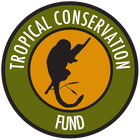Intrinsic value suggests that ecological entities, such as species or ecosystems, possess value in and of themselves, irrespective of their usefulness to human beings. There is intrinsic value in the natural diversity of organisms, the complexity of ecological systems, and the resilience created by evolutionary processes. This contrasts with instrumental value, where things are valued for their utility or benefits to humans.
There are many different perspectives on intrinsic value, including:
There are many different perspectives on intrinsic value, including:
- any perspective granting nature direct moral consideration
- biocentric environmental ethicists argue that life, or simply being alive, is the criterion for inherent value
- ecocentric ethics extend inherent value to incorporate nonhuman concepts such as species or ecosystems
- value beyond instrumental value
|
The concept of intrinsic value in ecology raises ethical questions about our responsibility to protect and preserve the natural world. It challenges humans to consider the moral implications of actions that may harm ecosystems or lead to the loss of species. Conservation efforts guided by intrinsic value principles aim to preserve ecosystems and species for their inherent worth, promoting a more holistic and sustainable approach to environmental management. Further described as part of Deep Ecology .
However, some have argued that we should emphasize nature's instrumental value for humans, often called 'ecosystem services' (ES) (Batavia and Nelson 2017). And that "emphasizing the human benefits of nonhuman nature work better than approaches emphasizing its intrinsic value (e.g., Marvier and Kareiva, 2014a). It might seem to suggest intrinsic value is becoming irrelevant, or at best trivial, to conservation practice and policy (Batavia and Nelson 2017). Instead, Vucetich et al. (2015) suggest that intrinsic value is rooted in "the notion that when something possesses intrinsic value it deserves to be treated with respect for what it is, with concern for its welfare or in a just manner." And, many who support ecosystem services also support “nature for nature’s sake,” regardless of whether there is also a benefit to humanity. |
|
Sources
Batavia, C., & Nelson, M. P. (2017). For goodness sake! What is intrinsic value and why should we care?. Biological Conservation, 209, 366-376.
Vucetich, J. A., Bruskotter, J. T., & Nelson, M. P. (2015). Evaluating whether nature's intrinsic value is an axiom of or anathema to conservation. Conservation Biology, 29(2), 321-332.
Batavia, C., & Nelson, M. P. (2017). For goodness sake! What is intrinsic value and why should we care?. Biological Conservation, 209, 366-376.
Vucetich, J. A., Bruskotter, J. T., & Nelson, M. P. (2015). Evaluating whether nature's intrinsic value is an axiom of or anathema to conservation. Conservation Biology, 29(2), 321-332.
